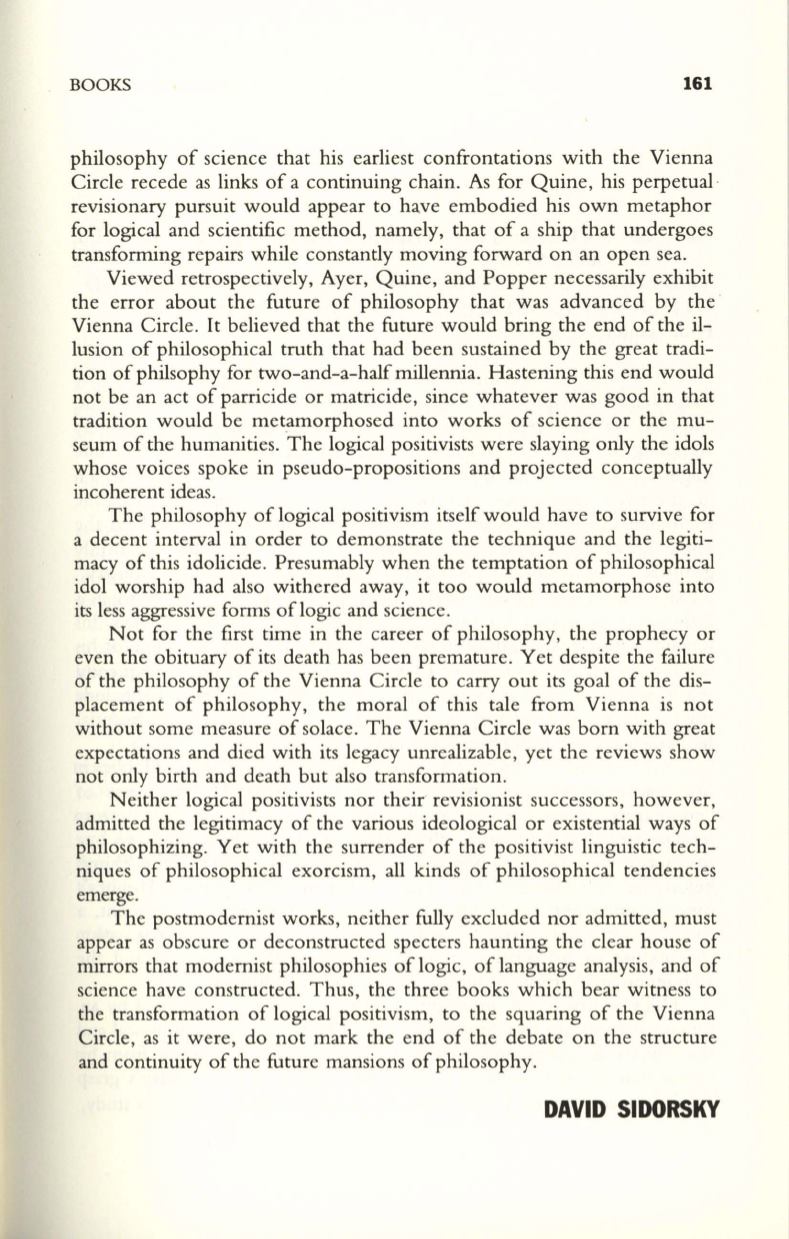
BOOKS
161
philosophy of science that his earliest confrontations with the Vienna
Circle recede as links of a continuing chain. As for Quine, his perpetual –
revisionary pursuit would appear to have embodied his own metaphor
for logical and scientific method, namely, that of a ship that undergoes
transforming repairs while constantly moving forward on an open sea.
Viewed retrospectively, Ayer, Quine, and Popper necessarily exhibit
the error about the future of philosophy that was advanced by the –
Vienna Circle.
It
believed that the future would bring the end of the il–
lusion of philosophical truth that had been sustained by the great tradi–
tion of philsophy for two-and-a-half millennia. Hastening this end would
not be an act of parricide or matricide, since whatever was good in that
tradition would be metamorphosed into works of science or the mu–
seum of the humanities. "The logical positivists were slaying only the idols
whose voices spoke in pseudo-propositions and projected conceptually
incoherent ideas.
The philosophy of logical positivism itself would have to survive for
a decent interval in order to demonstrate the technique and the legiti–
macy of this idolicide. Presumably when the temptation of philosophical
idol worship had also withered away, it too would metamorphose into
its less aggressive forms oflogic and science.
Not for the first time in the career of philosophy, the prophecy or
even the obituary of its death has been premature. Yet despite the failure
of the philosophy of the Vienna Circle to carry out its goal of the dis–
placement of philosophy, the moral of this tale from Vienna is not
without some measure of solace. The Vienna Circle was born with great
expectations and died with its legacy unrealizable, yet the reviews show
not only birth and death but also transformation.
Neither logical positivists nor their revisionist successors, however,
admitted the legitimacy of the various ideological or existential ways of
philosophizing. Yet with the surrender of the positivist linguistic tech–
niques of philosophical exorcism, all kinds of philosophical tendencies
emerge.
The postmodernist works, neither fully excluded nor admitted, must
appear as obscure or de constructed specters haunting the clear house of
mirrors that modernist philosophies of logic, of language analysis, and of
science have constructed. Thus, the three books which bear witness to
the transformation of logical positivism, to the squaring of the Vienna
Circle, as it were, do not mark the end of the debate on the structure
and continuity of the future mansions of philosophy.
DAVID SIDORSKY


